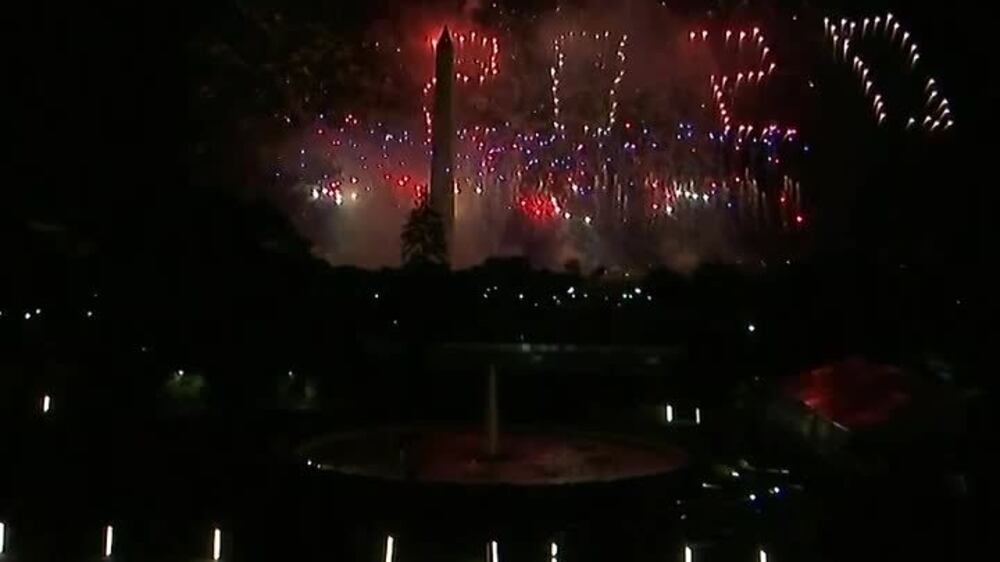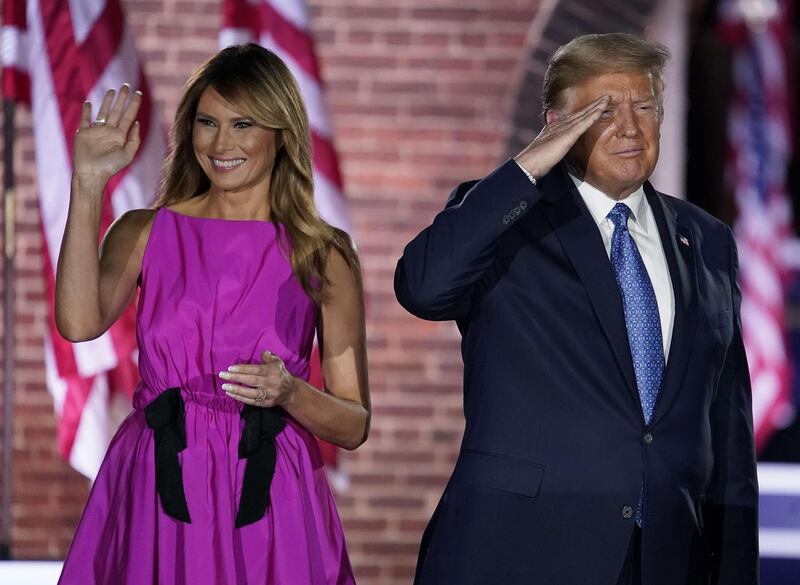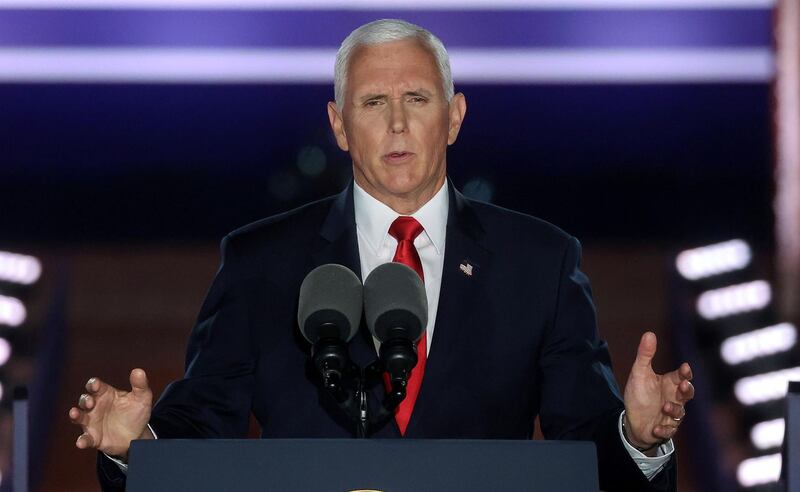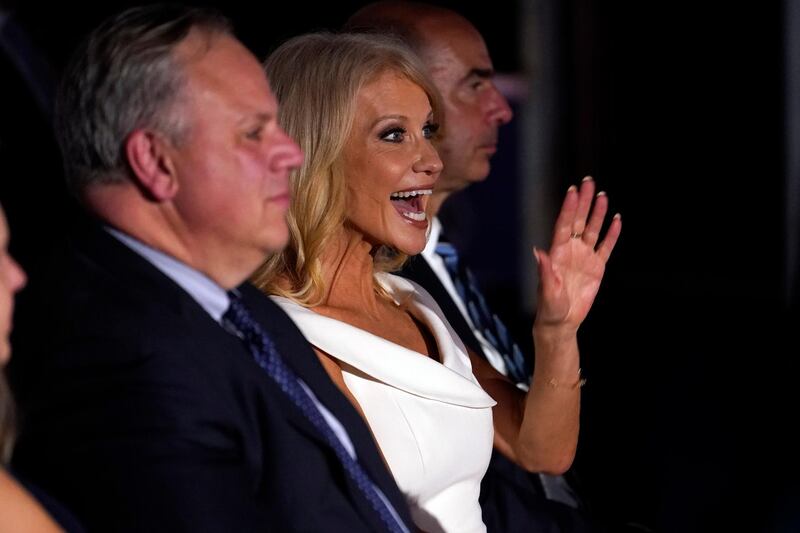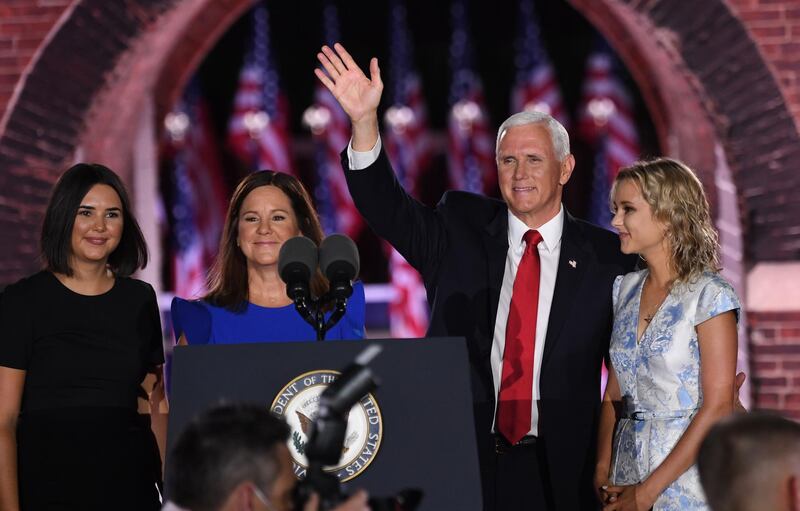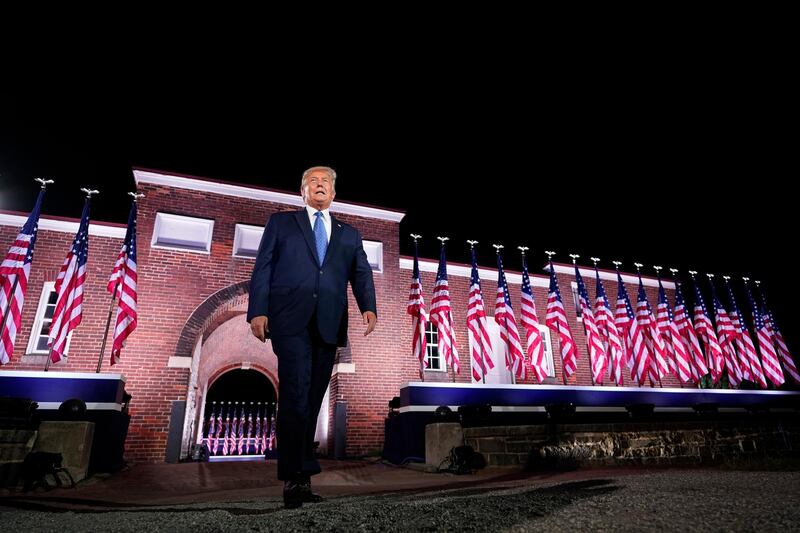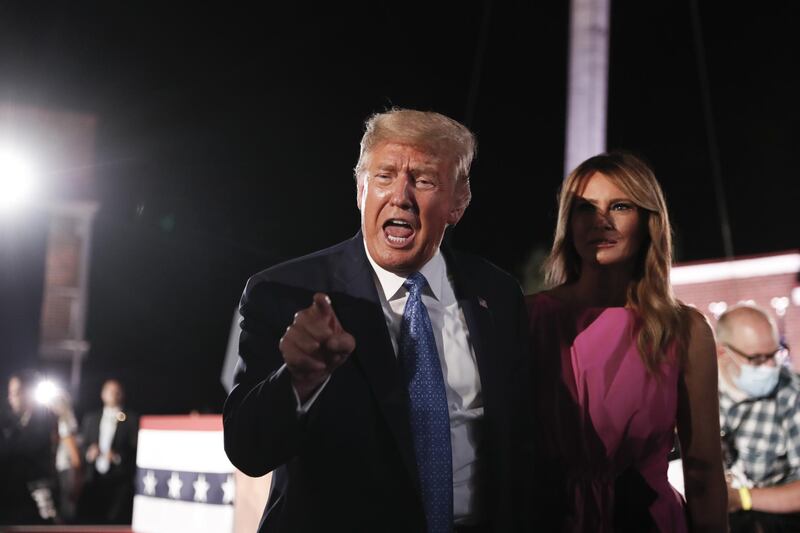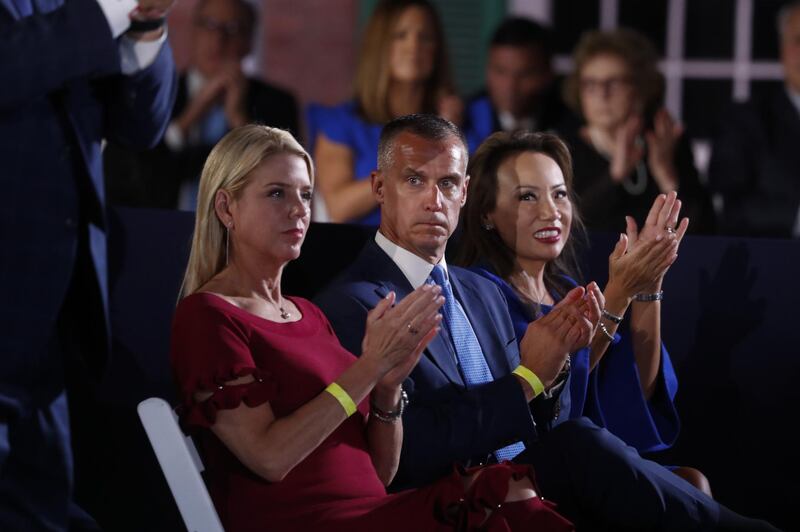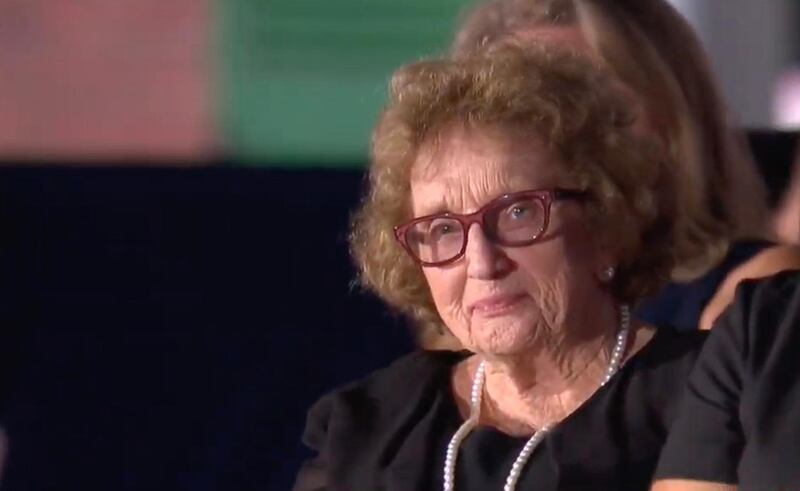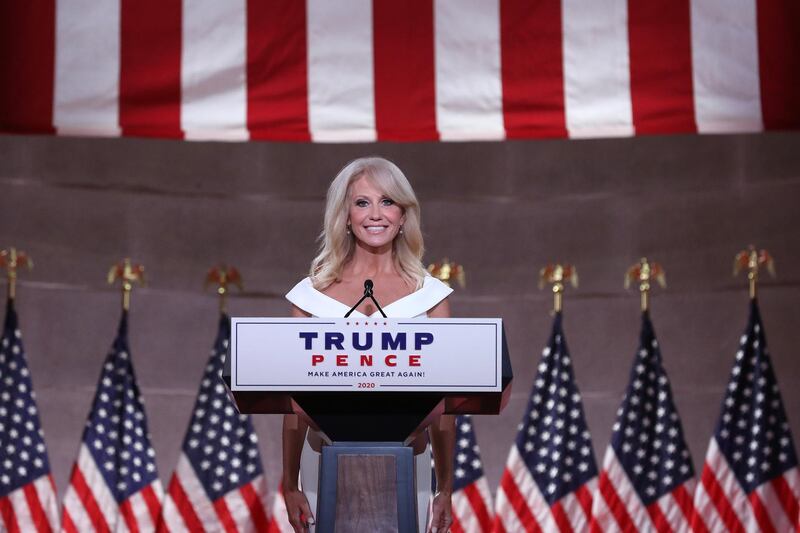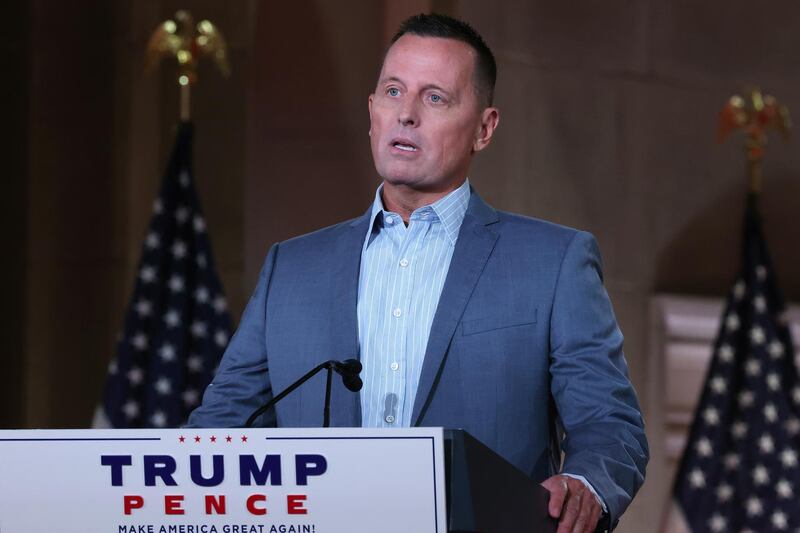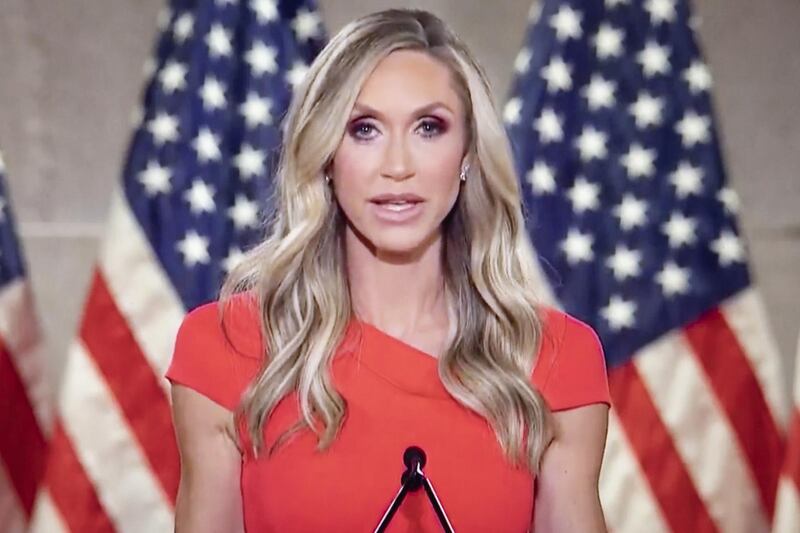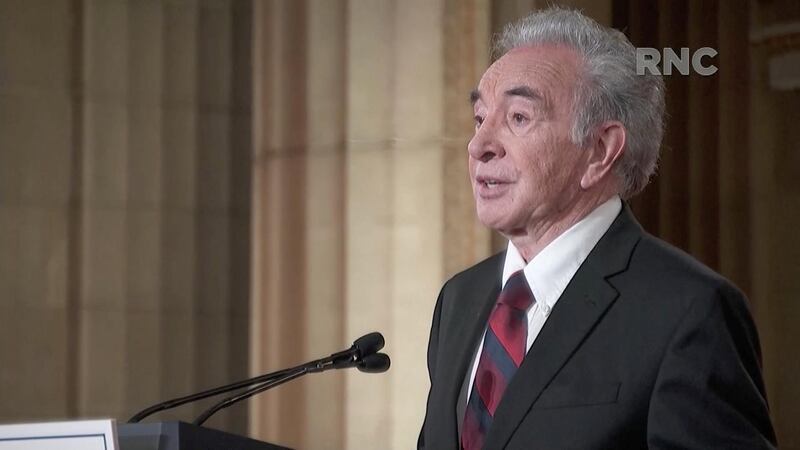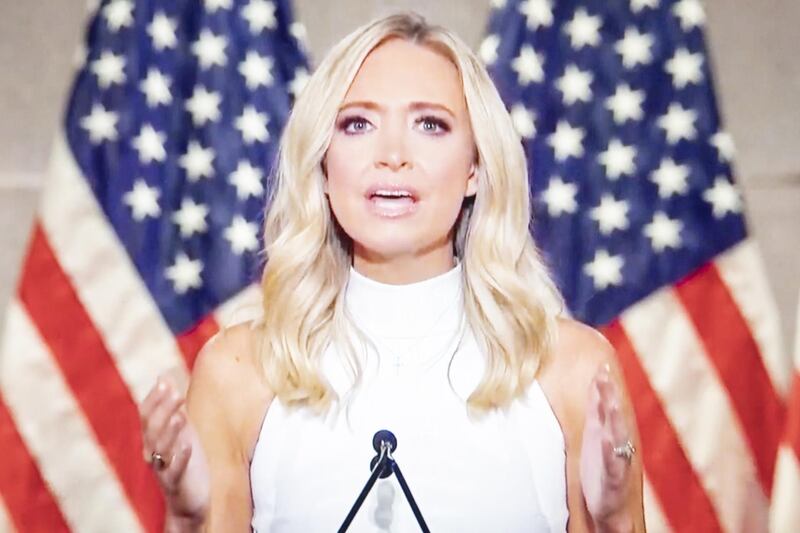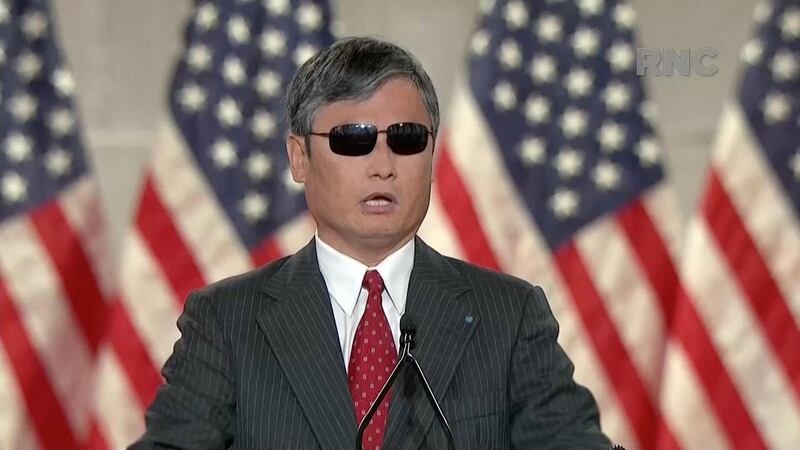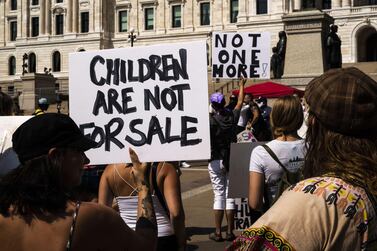US President Donald Trump's Republican Party nomination acceptance speech outside the White House on Thursday night was a Rorschach test for a divided America. His supporters will see an impressive spectacle and a strong case for re-election. His opponents will see a distillation of all that is most dangerous in his administration – a l'etat, c'est moi autocratic hubris.
The setting alone was divisive. Previous presidents have made political announcements from the White House, but none deployed the "people's house" and the trappings of the presidency as a reality TV set for starkly political purposes.
Mr Trump's base will see the grandeur of a great president revelling in his success. His opponents will see yet another abuse of power, state propaganda, flouting of political propriety, and, literally thousands of simultaneous violations of the (largely unenforceable) Hatch Act that forbids federal employees from using their positions for partisan political purposes.
With hundreds of his handpicked supporters densely packed, few masks to be seen and raucous chanting, the event certainly qualifies as a high-risk for spreading coronavirus. But his base will see the bold assertion that life goes on as normal in defiance of the Covid-19 pandemic, a determination to overcome through force of will. His opponents will view it all as yet another instance of the conscious psychic denial that has characterised Mr Trump's mishandling of the pandemic and a breach of his administration's own guidelines for public events.
In his lengthy and repetitive speech, the President's supporters will have heard a strong case for his re-election, and a powerful condemnation of his opponent Joe Biden. Mr Trump's adversaries will note dozens of lies, contradictions, rewritings of history and an incongruous effort to paint the staunchly moderate Mr Biden as a dangerous left-wing fanatic.
Perceptions between Trump supporters and opponents will be so irreconcilable that they might as well have been watching two entirely different events. But the two camps agree that this is the most important election in generations, and that everything the country stands for could be destroyed by the other side.
Mr Trump depicts Democrats as determined to annihilate US culture, economy and society, and impose a Cuban or Venezuelan-style communist dictatorship. His opponents, including many lifelong Republicans, see Mr Trump as a budding American dictator and worry that four more years of attacks on democratic guardrails and established institutions will leave the US looking like illiberal and corrupt autocracies rather than any traditional democracy.
It remains to be seen which side will be able to convince a larger coalition of Americans the other is the bigger threat.
Before it began, Mr Trump and his aides promised a positive and uplifting convention that improved on the supposedly "sour and dour" mood of the Democrats. That always seemed implausible. And in the event, pretty much all Mr Trump had to sell was fear of the other side.
Democrats have a detailed governing agenda, although some of it is internally inconsistent between different documents. Under Mr Trump, this year, for the first time in its history, the Republican Party declined to adopt a formal platform, simply vowing to support anything he does, no matter what. That is partly an indication of its capitulation to a cult of personality and also a reflection of the fact that they have no idea what he is going to do next, and he does not want to be boxed in by any written document. It is now simply the "Trump Party".
So, they are running entirely on his personality, and largely fabricated or exaggerated claims of successes, while Democrats are at least trying to offer an alternative vision. Mr Biden did not mention Mr Trump at all in his acceptance speech while Mr Trump spent much of the time lambasting and caricaturing his opponent.
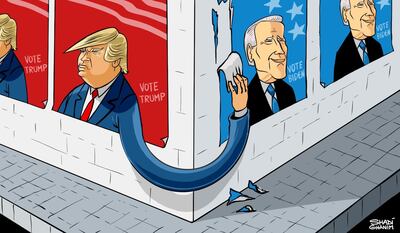
Going into the convention, Mr Trump was losing and he knows it. He was desperately trying to turn things around and create a new narrative, drawn on his deepest political memories. They were, naturally, shaped when he was a young man in the 1960s and 70s. And he is increasingly taking his cues from Richard Nixon's political approach.
The best guide to the present is Rick Perlstein's book Nixonland, which explains how the 37th president relied on fear, hate, and class and ethnic resentment to gain and hold on to power.
Listening to Mr Trump you would think it was 1968, with cities in flames, society falling apart, and left-wing radicals confronting the whole system of government, all against the backdrop of a devastating foreign war. And you are meant to somehow forget that he is in charge, and is therefore responsible for the national condition. Under his rule, the country is a mess, yet only he can fix it.
Mr Trump's approach even more closely mirrors that of Nixon's Vice President Spiro Agnew in 1972. Agnew went to war with the media, liberal culture, programmes for greater fairness, and most of what Mr Trump rails against, in similar angry, resentful language.
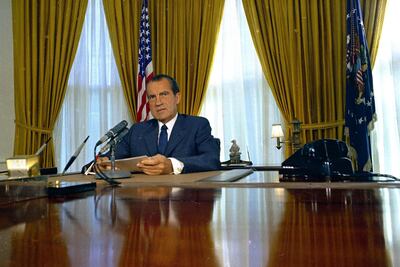
Nixon pioneered the "law-and-order" pitch to white suburban fears of urban and dark-skinned chaos and encroachment. Mr Trump is repeating this verbatim while adding on anti-immigrant sentiment in an effort to reverse the devastating defection of white suburban women from his coalition.
But it is not 1968 or 1972. It is 2020.
Republicans avoided the pandemic, or referred to it in the past tense as if it were over, and rewrote history suggesting Mr Trump saved millions of lives rather than overseeing an ongoing public health catastrophe. The same applies to the economy, which they claimed is roaring back but in fact continues to struggle. Spectacles aside, Americans know that.
Mr Trump may get a bounce, but 2020 is still likely to be a healthcare and jobs election, not a race, culture and law-and-order one. Unless he can change what Americans care most about, he does not seem much better positioned to win now than a week ago.
Hussein Ibish is a senior resident scholar at the Arab Gulf States Institute in Washington
